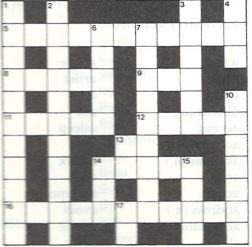

Grammar


Tenses


Present

Present Simple

Present Continuous

Present Perfect

Present Perfect Continuous


Past

Past Simple

Past Continuous

Past Perfect

Past Perfect Continuous


Future

Future Simple

Future Continuous

Future Perfect

Future Perfect Continuous


Parts Of Speech


Nouns

Countable and uncountable nouns

Verbal nouns

Singular and Plural nouns

Proper nouns

Nouns gender

Nouns definition

Concrete nouns

Abstract nouns

Common nouns

Collective nouns

Definition Of Nouns

Animate and Inanimate nouns

Nouns


Verbs

Stative and dynamic verbs

Finite and nonfinite verbs

To be verbs

Transitive and intransitive verbs

Auxiliary verbs

Modal verbs

Regular and irregular verbs

Action verbs

Verbs


Adverbs

Relative adverbs

Interrogative adverbs

Adverbs of time

Adverbs of place

Adverbs of reason

Adverbs of quantity

Adverbs of manner

Adverbs of frequency

Adverbs of affirmation

Adverbs


Adjectives

Quantitative adjective

Proper adjective

Possessive adjective

Numeral adjective

Interrogative adjective

Distributive adjective

Descriptive adjective

Demonstrative adjective


Pronouns

Subject pronoun

Relative pronoun

Reflexive pronoun

Reciprocal pronoun

Possessive pronoun

Personal pronoun

Interrogative pronoun

Indefinite pronoun

Emphatic pronoun

Distributive pronoun

Demonstrative pronoun

Pronouns


Pre Position


Preposition by function

Time preposition

Reason preposition

Possession preposition

Place preposition

Phrases preposition

Origin preposition

Measure preposition

Direction preposition

Contrast preposition

Agent preposition


Preposition by construction

Simple preposition

Phrase preposition

Double preposition

Compound preposition

prepositions


Conjunctions

Subordinating conjunction

Correlative conjunction

Coordinating conjunction

Conjunctive adverbs

conjunctions


Interjections

Express calling interjection

Phrases

Sentences

Clauses

Part of Speech


Grammar Rules

Passive and Active

Preference

Requests and offers

wishes

Be used to

Some and any

Could have done

Describing people

Giving advices

Possession

Comparative and superlative

Giving Reason

Making Suggestions

Apologizing

Forming questions

Since and for

Directions

Obligation

Adverbials

invitation

Articles

Imaginary condition

Zero conditional

First conditional

Second conditional

Third conditional

Reported speech

Demonstratives

Determiners

Direct and Indirect speech


Linguistics

Phonetics

Phonology

Linguistics fields

Syntax

Morphology

Semantics

pragmatics

History

Writing

Grammar

Phonetics and Phonology

Semiotics


Reading Comprehension

Elementary

Intermediate

Advanced


Teaching Methods

Teaching Strategies

Assessment
Two Hours Eating For $5
المؤلف:
L.A Hill
المصدر:
Elementary Steps To Understand
الجزء والصفحة:
56-1
29/10/2022
1719
Mr. Reece was a farmer. He and his wife grew a lot of things and they had a few cows. They worked very hard. One day, Mr. Reece said to his wife, 'Let's go to Portsmouth next Sunday. We can have a good lunch there, and then we can go to the cinema.
His wife was very happy when she heard this, because she and her husband always ate a lot, and she did not like cooking three times a day every day.
They went to Portsmouth by train and walked about for an hour. Then, when it was 12 o'clock, they wanted to have a meal. They looked at several restaurants. In one of them there was a notice outside: 'Lunch: 12.30 to 2.30: $5.
'Well, that's good,' Mrs. Reece said. "We can eat for two hours for $5 here! This is the place for us.
A Which of these sentences are true (T) and which are false (F)? Write T or F.
- Mr. and Mrs. Reece lived in a city.
- They worked very hard.
- They always ate a lot.
- Mrs. Reece enjoyed cooking every day.
- They walked about in Portsmouth for two hours.
- Mrs. Reece did not often eat in restaurants.
B Answer these questions.
- What work did Mr. Reece do?
- What did his wife do?
- What did he say to his wife one day?
- Why did this make his wife happy?
- How did they go to Portsmouth?
- What did they do at 12 o'clock?
- What did they see on the notice outside one restaurant?
- What did Mrs. Reece say then?
C Do this puzzle.
Across:
5. The restaurant closed at ... (three words).
8. Somebody wrote 'Lunch: 12.30 to 2.30: 85p' on a piece of ………….
9. 'How many of the meals did Mrs. Reece cook each day when she was at home?"……... of them."
11. She cooked three meals…....day.
12. Mr. and Mrs. Reece wanted to have ...in a restaurant.
13. Did the people in the restaurant really let Mr. and Mrs. Reece eat for two hours?
14. Cities are usually bigger than....
16. Mr. and Mrs. Reece looked at several ... before they chose one.

Down:
1. These people sell things in their shops.
2. Easiest to slide on.
3. A thief has... my money!
4. Mr. Reece always ate a..., because he was always hungry.
6. When Mrs. Reece has a ... in her house, she always invites a lot of people.
7. Less deep.
10. Mrs. Reece buys her medicines at a ...'s shop in the city.
13. The address of the restaurant was...5, Smith Street.
14. Mrs. Reece does not drink coffee after lunch: she drinks....
15. Mrs. Reece sometimes sings a... while she is milking the cows.
17. Mr. Reece never leaves any food on his plate: he always eats it all
 الاكثر قراءة في Elementary
الاكثر قراءة في Elementary
 اخر الاخبار
اخر الاخبار
اخبار العتبة العباسية المقدسة

الآخبار الصحية















 قسم الشؤون الفكرية يصدر كتاباً يوثق تاريخ السدانة في العتبة العباسية المقدسة
قسم الشؤون الفكرية يصدر كتاباً يوثق تاريخ السدانة في العتبة العباسية المقدسة "المهمة".. إصدار قصصي يوثّق القصص الفائزة في مسابقة فتوى الدفاع المقدسة للقصة القصيرة
"المهمة".. إصدار قصصي يوثّق القصص الفائزة في مسابقة فتوى الدفاع المقدسة للقصة القصيرة (نوافذ).. إصدار أدبي يوثق القصص الفائزة في مسابقة الإمام العسكري (عليه السلام)
(نوافذ).. إصدار أدبي يوثق القصص الفائزة في مسابقة الإمام العسكري (عليه السلام)


















